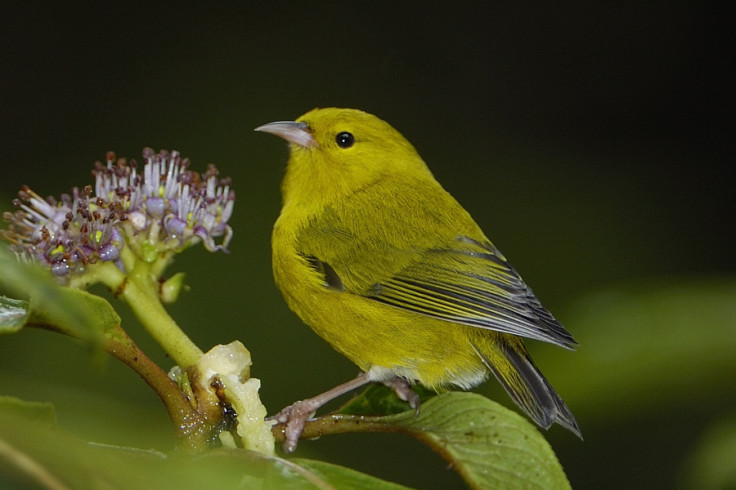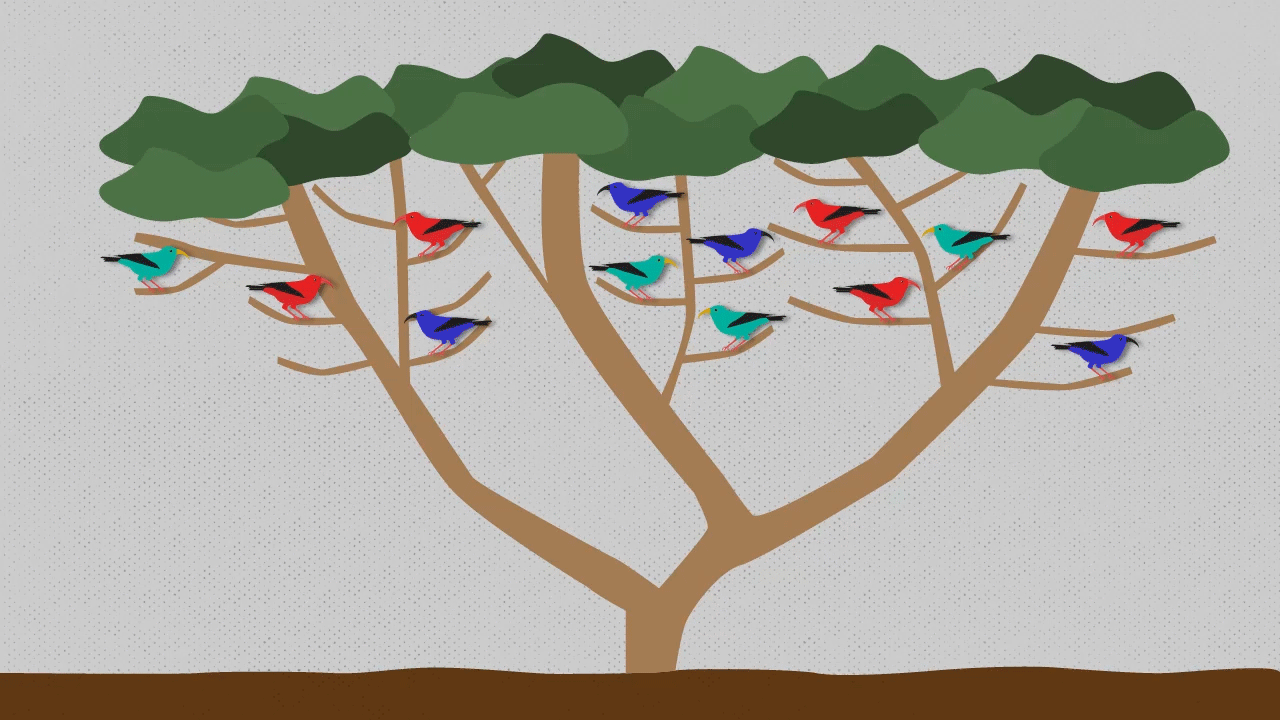Extinction tipping point reached for native forest birds on Hawaii's Kaua'i
Almost all native bird species have seen rapid collapse in populations in recent decades.

Most species of forest birds native to the Hawaiian island of Kaua'i have crossed the tipping point, with multiple extinctions predicted in forthcoming decades, researchers have warned. Using 35 years' worth of, scientists showed six of seven species of native forest birds have seen rapid population declines, primarily driven by climate change-induced disease spread.
Led by Eben Paxton from the USGS Pacific Island Ecosystems Research Centre, a team of scientists looked at population surveys of birds on Kaua'i between 1981 and 2012. Previous surveys that only included data up until 2000 had led scientists to be "cautiously optimistic" about their health – but the latest findings show this is not the case.
The study, published in Science Advances, showed six species of Hawaiian honeycreepers had seen population declines of up to 94% in their core ranges. The last decade has witnessed the biggest declines, with populations falling up to 5.7 times faster between 2000 and 2012 compared with the entire period covered.
Researchers say the cause of the decline is the increase in the spread of disease – primarily avian malaria – which has been caused by warmer temperatures brought about by climate change. Warmer temperatures have led to greater spread via mosquitos that live in the forest habitats. Cooler temperatures had been keeping such diseases at bay.

"We document the rapid collapse of the native avifauna on the island of Kaua'i that corresponds to changes in climate and disease prevalence," they wrote. "Although multiple factors may be pressuring the community, we suggest that a tipping point has been crossed in which temperatures in forest habitats at high elevations have reached a threshold that facilitates the development of avian malaria and its vector throughout these species' ranges ... . If current rates of decline continue, we predict multiple extinctions in the coming decades."
Just one of the seven species surveyed did not show a drop in population. Kaua'i 'eleapio came from a lineage that arrived on Kaua'i later than the others and have demonstrated greater tolerance to introduced diseases than the other native species. However, the team warn this species too is declining across its outer range – indicating other factors are also affecting them.

The implications of the study are concerning. The scientists say it should serve as an early warning for forest bird communities on other islands, including Mau, as well as species "trapped within a climatic space that is rapidly disappearing".
For Kaua'i, the scientists add: "The implications of the loss of many of Kaua'i native birds go far beyond the birds themselves. The potential extinction[s] ... will likely continue to reduce the ecological integrity of the island's forest and result in continued degradation of ecosystem processes."
Concluding, they said: "Our findings clearly demonstrate the rapid effects that climate change can have on species with small geographic ranges and specific climatic constraints, and unless an effective conservation response can be developed, provide a glimpse of what the future holds for species on other Hawaiian islands and beyond."
© Copyright IBTimes 2025. All rights reserved.





















